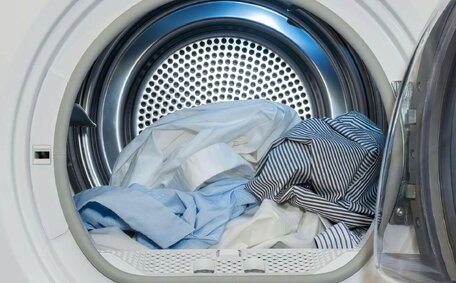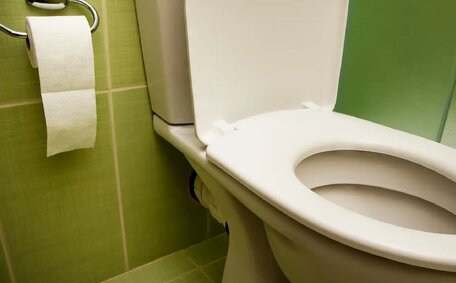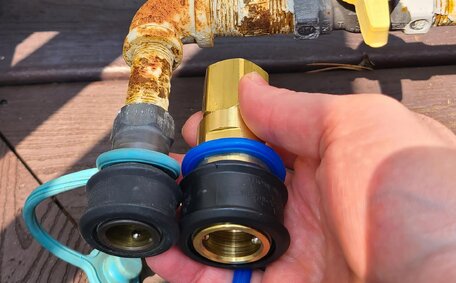The Chemical Properties of Baking Soda and Vinegar
Baking soda, also known as sodium bicarbonate, is a high ph level alkaline compound with a value of around 8. Vinegar contains acetic acid and has a pH of around 2-3, making it mildly acidic.
When you mix baking soda with vinegar, they undergo an acidic-base neutralisation reaction.
The two ingredients essentially cancel each other out in one of the fascinating chemical reactions, forming sodium acetate in water and carbon dioxide gas. This reaction happens very quickly and can be fun to watch, but it leaves behind a neutral liquid without the useful chemical properties of baking soda or vinegar on their own.
On its own, cleaning baking soda acts as a gentle abrasive and a natural deodorizer, making it ideal for freshening surfaces. Make your own effective cleaning acid with vinegar that can dissolve mineral deposits like limescale and cut through grease due to baking soda white vinegar’s acetic acid content.
Baking soda’s alkaline nature helps dissolve deposits and lift dirt, particularly effective against hard water stains.
Instead of mixing vinegar and baking soda, utilise their separate strengths. Vinegar diluted in water is excellent for cleaning tasks such as descaling, while baking soda is perfect for making a paste to scrub surfaces, and its granularity provides targeted cleaning.
Using Baking Soda to Deodorize and Gently Clean
Using baking soda alone as a gentle yet effective cleaner can lift dirt, absorb odours, and remove light stains without harming surfaces due to its mild abrasive properties.
Baking soda paste mixed with hydrogen peroxide can freshen up chrome fixtures, clean your oven, and tackle limescale buildup.
Baking soda naturally neutralises odours rather than masking them, helping to freshen up spaces such as your kitchen bin, under the sink, or the toilet bowl by absorbing persistent smells.
Enhance baking soda’s cleaning efficacy by using it with hot or boiling water, which activates its alkaline properties to dissolve deposits more rapidly.
Test baking soda mixes first on inconspicuous areas if unsure about how to use your cleaning products on baking surfaces at home. Baking soda is safe for use as a non-toxic alternative to chemical cleaning products on most colorfast materials throughout the wash cycle in your laundry and around the home.
The Benefits of Vinegar for Dissolving Mineral Deposits
Set up vinegar as an effective remedy for your home, can even dissolve mineral deposits like limescale due to its acetic acid content. The acetic acid in vinegars such as white vinegar or apple cider vinegar makes them mildly acidic cleaners.
When sprayed or wiped onto mineral buildup and hard water stains, vinegar dissolves the deposits through a chemical reaction. The acidic nature of vinegar can help loosen and dissolve the limescale so it can easily be wiped away.
For best results against limescale, use vinegar undiluted to create foam and bubbles that aid in lifting grime.
Spray vinegar onto showerheads, sink fixtures, and tile grout lines to dissolve mineral deposits. After a few minutes, scrub the area with an old toothbrush to clean away the residues.
To tackle stubborn limescale, heat up vinegar and pour it over the deposits. Allow it to work for 5-10 minutes before scrubbing, as the heat enhances the action of the acetic acid.
Take care using vinegar around marble, granite or other acid-sensitive surfaces, but remember that baking soda can help clean without causing damage to these surfaces. But it’s generally safe for use on chrome, stainless steel and ceramic.
Why Combining Baking Soda and Vinegar Reduces Effectiveness
It’s a common misconception that mixing baking soda and vinegar together makes a clean vinegar baking solution more effective because they don’t. Unfortunately, combining them is actually less effective because the ingredients react and neutralise one another.
The meeting of baking soda, a base, and vinegar, an acid, triggers a chemical reaction that produces carbonic acid, carbon dioxide gas, and water, leaving behind a neutral solution with no cleaning attributes.
On their own, baking soda and vinegar have useful individual properties. Baking soda lifts dirt, absorbs odours, and acts as a gentle abrasive for scrubbing, helping to keep your home fresh and making it a staple for green cleaning. Vinegar acts as a natural oven cleaner that dissolves mineral deposits and breaks down grime.
But when these two ingredients are combined, their powerhouse acid-base reaction cancels out their unique advantages. The resulting fizzing may seem impressive, but it serves no real cleaning purpose.
Straight vinegar shines when descaling a shower head and other fixtures. Relying on figuring out what I understand about their individual strengths is more effective.
Unclogging Drains with Baking Soda or Vinegar
Clogged drains can often be cleared by individually using baking soda or vinegar, as each ingredient is effective on its own without needing to be combined.
Unclogging with Baking Soda
To treat your slow-running drain with soda:
- Bring half cup baking water to a boil on the stove to start the process for cleaning your drain.
- Pour approximately baking soda 1 cup down the drain, being careful to avoid splashing.
- Follow with the boiling water, pouring slowly and allowing the baking soda to bubble up and vinegar react.
- Let sit few minutes for the drain, then flush again with more baking soda water to clear debris.
The heat activates the baking soda base in the mixture, loosening built-up gunk. Its abrasive texture also helps scrub the drain walls. Repeat the treatment even more than once for severe clogs.
Unclogging with Vinegar
To break up grime, mix vinegar with hot water as part of the process:
- Heat up one cup of water and add a cup white vinegar, just below boiling. This should suffice for effective cleaning.
- Carefully pour the hot vinegar solution down the blocked drain.
- Let the vinegar sit for 5-10 minutes to allow the acetic acid time to work on dissolving buildup.
- Flush the drain with very hot water for a minute.
The heated vinegar then, as a natural cleaning agent, dissolves soap scum, hair, and other grimy materials stuck in drain pipes. Remember to rinse thoroughly. Undiluted vinegar can also be directed vinegar into badly clogged drains.
Forsink drain clogs specifically, plug the overflow holes before pouring in baking soda or vinegar to prevent the ingredients from escaping unused. Use a plunger after to help dislodge the loosened clog.
Make sure to note that extremely stubborn clogs may require a drain snake or professional drain cleaning. But baking soda and vinegar remedies provide an affordable, non-toxic starting point when tackling minor to moderate home drain blockages.
Best Practices for Using Baking Soda or Vinegar
To effectively harness the cleaning power of baking soda or vinegar, follow these best practices:
Baking Soda
- You can use one tablespoon baking soda mixed with warm water to form a spreadable paste for scrubbing surfaces. Start with one tablespoon of baking soda to two parts water.
- For tough odours, sprinkle baking soda generously in the area and allow to sit overnight before vacuuming up.
- Enhance the degreasing ability by adding laundry detergent to 2 tablespoons baking soda to form an effective cleaning paste.
- Pour half cup of clean baking soda down drain followed by hot water to clear soap scum clogs. Let it sit for 15 minutes before rinsing.
Vinegar
- Use undiluted distilled white vinegar straight from the bottle when addressing mineral deposits like limescale.
- For a gentle scrub that will baking soda clean your surfaces, mix the powder and transfer it into a spray bottle with just enough water to form a paste. Shake before use.
- Clean porous surfaces cautiously with vinegar. Spot test granite, marble and stone first.
- Sanitise kitchen counters by spraying full-strength vinegar, then letting it stand briefly before wiping up.
Avoid combining baking soda and vinegar for vinegar clean tasks, as it wastes their individual strengths. Learn more about ensuring surfaces are sparkling clean with vinegar and rinse well after using.
When to Call a Professional Plumber
While baking soda and vinegar can be very useful for minor clogs and cleaning tasks, there are times when it’s best to call in a professional plumber for assistance.
Severe main drain clogs that persist after boiling water, baking soda, vinegar, and plunger attempts may need a professional-grade drain snake to resolve. Root intrusion or collapsed pipes are other issues that require expert attention.
For specific plumbing systems like copper pipes, PEX piping, or PVC drains, DIY chemical cleaning methods may inadvertently damage components. A qualified plumber can assess compatibility and tackle issues safely.
Major leaks, burst pipes flooding, or complete fixture breakdowns obviously demand immediate professional help. But even slow, small leaks that i dont see but gradually worsen should get assessed - they can indicate pipe corrosion requiring replacement.
If you smell natural gas or LP gas odours, evacuate the building and call emergency services right away. Licenced gas fitters like those at Ryde Plumbing handle unsafe gas line and appliance situations once the area is safe to enter.
For fast, affordable plumbing services in the Ryde area including blocked drain cleaning, hot water system repairs, burst pipe response, gas fitting safety checks and more, contact the team at Ryde Plumbing on 1300 349 338 or email jobs@rydeplumbingservices.com.au.
Don’t hesitate to find out more with our services for advice on troubling plumbing problems or persistent issues not resolving with DIY methods. Ryde Plumbing technicians serve residential and commercial customers across Ryde and wider Sydney.






